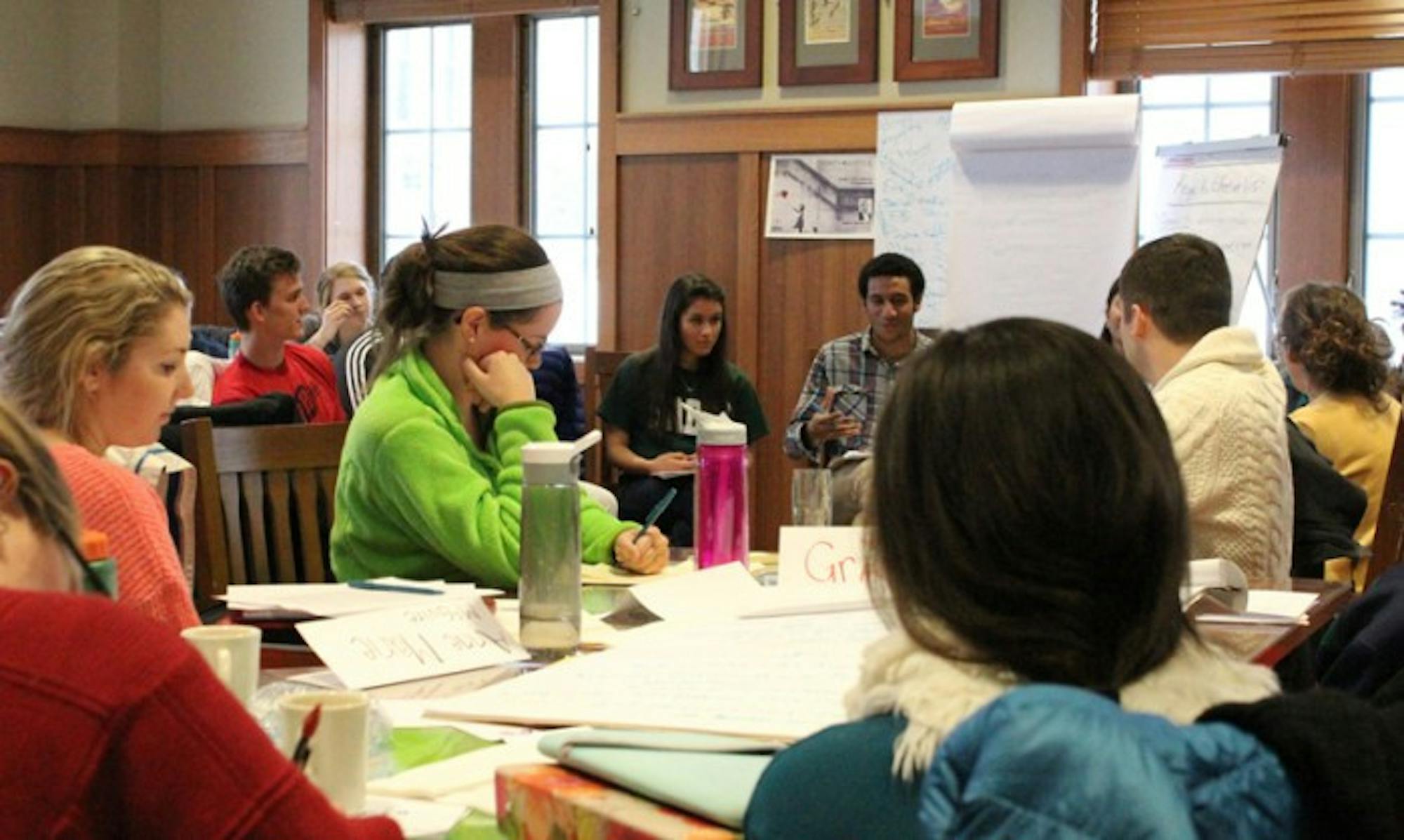Students in the one-credit Advocacy for the Common Good course underwent nearly eight hours of training Saturday in preparation for a semester of researching social problems, planning response strategies and executing events to raise public awareness.
Michael Hebbler, director of student leadership and senior transitions at the Center for Social Concerns (CSC), is teaching the advocacy course to students from Notre Dame, Saint Mary’s College and Holy Cross College.
“It’s pretty broad, but for the purposes of this course, advocacy is accompanying people on the margins and working to change the structures that lead to oppression,” Hebbeler said.
Sophomore Jessica Peck, a student currently enrolled in the course, said the training helped her prepare to research and address deep-seeded social concerns.
“The training session was a sampling of a lot of different ways of drawing attention to important issues,” Peck said. “We talked about what motivates people to act and how to tap into that when mounting an advocacy campaign.
“We also talked specifics: What are necessary considerations when hosting an event? How do you conduct a successful lobbying visit to a congressman, senator or other elected official? How do you frame your issue when talking to the media?”
Hebbeler said he plans for his students to split into four small groups to research and address specific social problems of interest to the Catholic Relief Services (CRS) and CSC, including immigration reform, the conflict in Syria, global hunger and incarceration. He said students will develop a clear message about the topic and share that message through a “public meeting,” anything from lobbying a congressional representative to hosting a rally.
“The course project culminates in the public meeting, but we remind our students that it’s very much in the process where learning takes place,” Hebbeler said.
Junior Matt Hing took Advocacy for the Common Good the first time it was offered in the spring of 2013. He said he studied immigration reform, worked on a letter-writing campaign and met with a congressional representative to discuss the issue.
“You do the project, and you can see that you enacted actual change,” Hing said. “You see all your efforts. You see the result you made. You can see people are talking about it afterward, and that was a really cool feeling to see that a group of people can actually make a small-scale difference with enough time and enough resources.”
Hebbeler said students often take Advocacy for the Common Good after they have first-hand experiences with injustice through programs like the CSC’s Border Issues Seminar. He said those students want to fight for justice but do not know how to accomplish real change.
“The main reason for this course on advocacy is for students to channel their passions on different social issues that they’ve encountered through their time here at Notre Dame,” Hebbeler said. “You become impassioned and then you get back to campus and life goes on, things get busy and yet this passion remains.
“We provide this course as
a structured way forward to work on those issues and effect change … We provide a way for [students] to address the root causes, the structures that create the injustice that they’ve encountered.”
Hebbeler said he worked with the CRS to implement the course last January. He said the CRS previously sent one representative to campus each semester to train the students in advocacy and prepare them for their work during the semester, but this year an additional CRS representative came to observe the process.
“No other school is doing this exact thing with CRS,” he said. “We have other courses [at Notre Dame] that are examining advocacy … but as far as working with CRS in this manner on an accredited advocacy course, there are no other programs like that and courses like that.”
The class closely aligns with Catholic Social Teaching and the Church’s views on human dignity, Hebbeler said.
“These are large-scale issues, but Catholic Social Teaching reminds us that it’s the dignity of each individual that we are seeking to uplift, to protect, and that does something to our dignity,” he said. “Justice is right relationship, and so for the dignity of persons on the margins, but also our own dignity, we seek out these issues and we commit to the work in the name of solidarity.”
Peck said she considered the course her opportunity to follow a call to action.
“We can’t be content wishing well on the world or feeling bad because some people don’t have food to eat and that’s just too bad,” she said. “We are in a position to act, and this class is giving us the tools to do that.”













